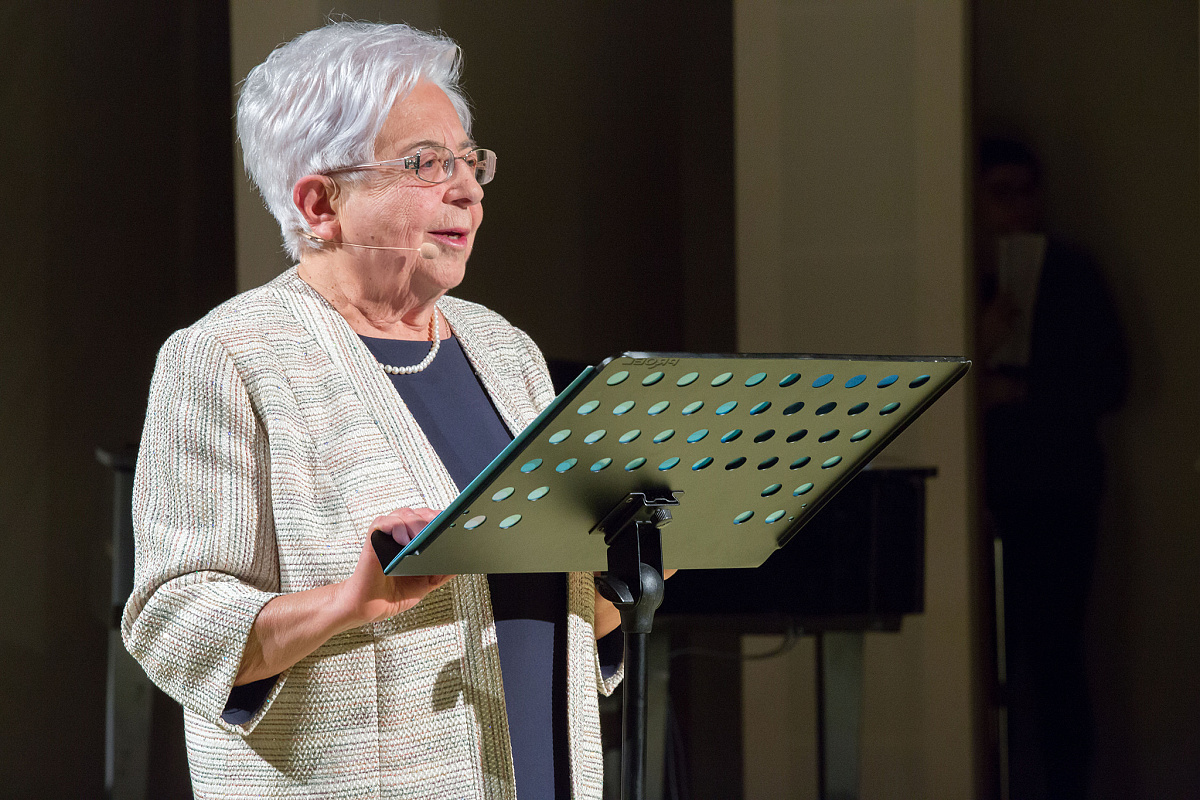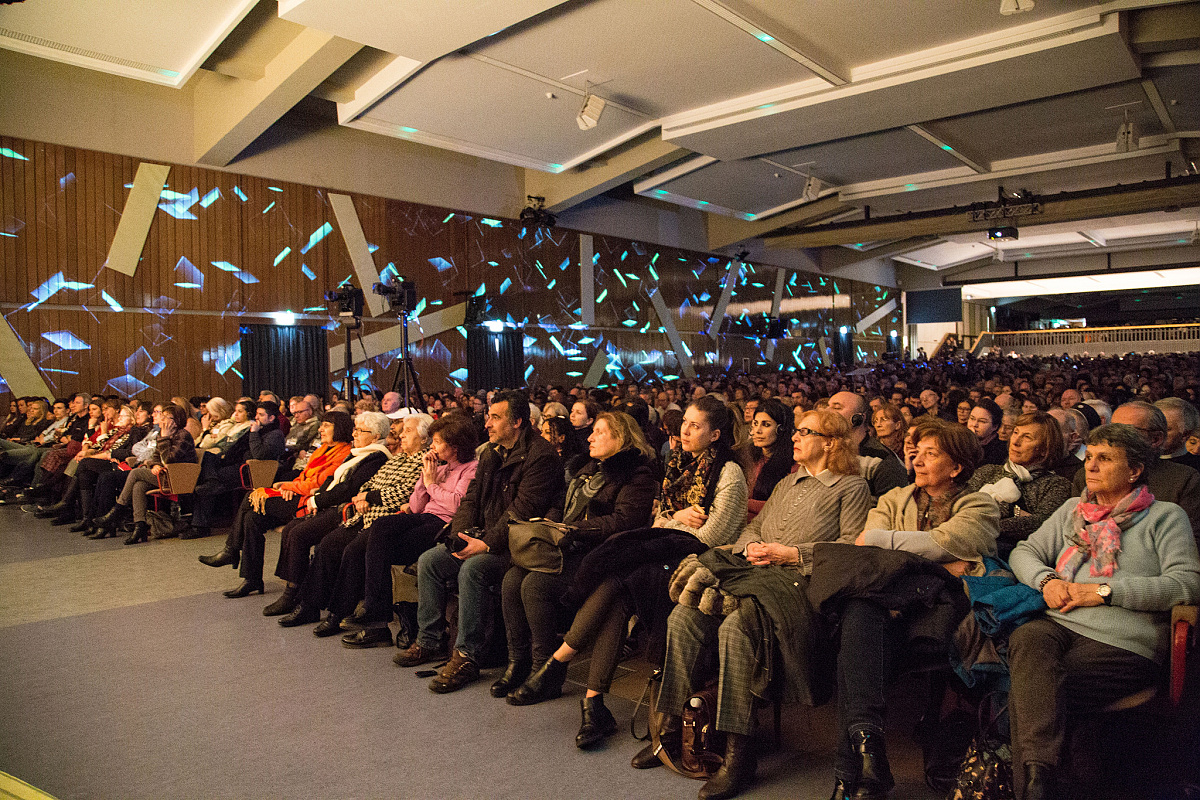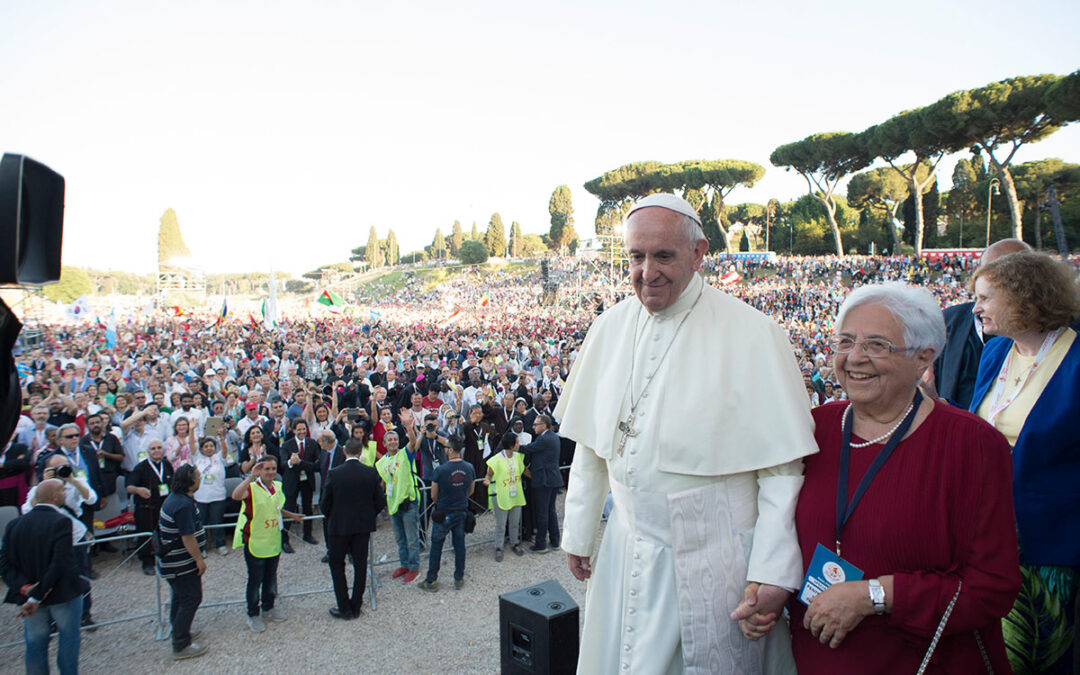
Five luminous and fruitful years
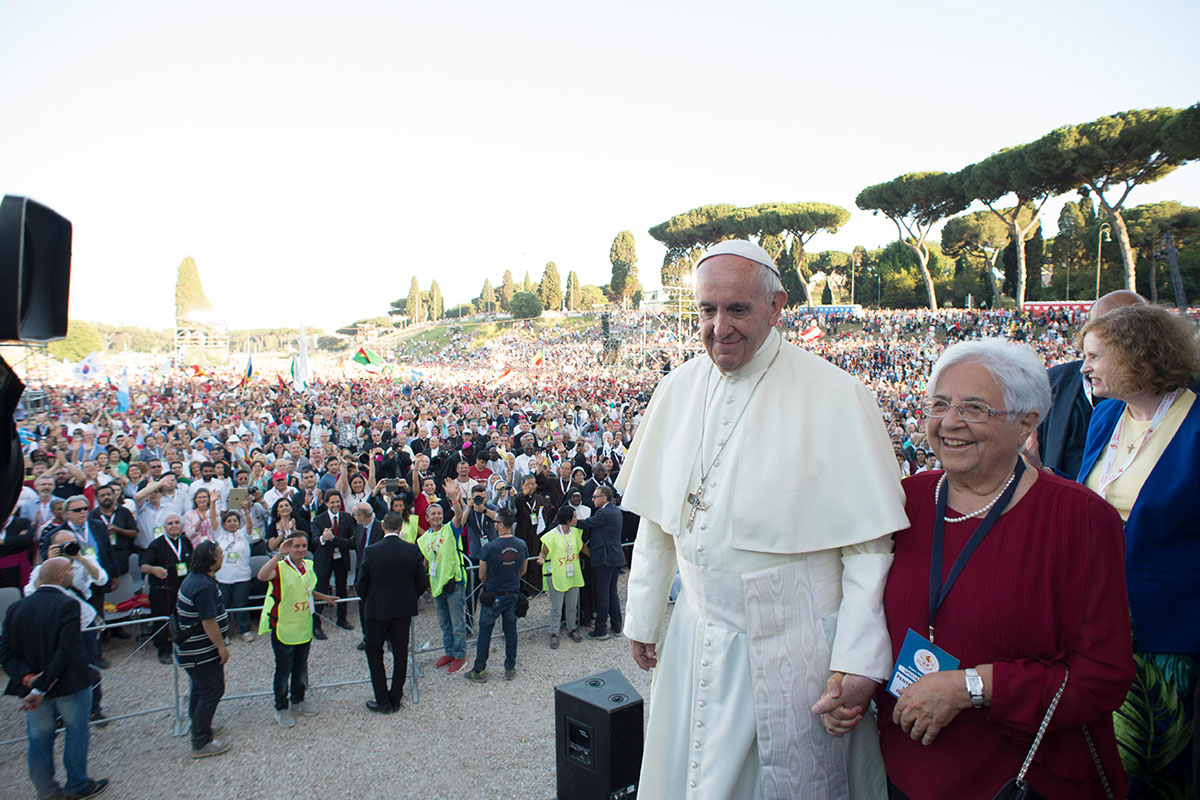 “Five years of enlightening and fruitful pontificate.” Maria Voce’s greeting to Pope Francis, in the name of the Movement’s communities worldwide, was full of joy and gratitude. She assured him of the Movement’s renewed commitment to “bring the proclamation of the Gospel to men and women in the most varied situations” and “ that we shall always be faithfully by your side, cooperating with all our strength in proclaiming God who loves the world so much. We assure You of all our love and prayers.” Maria Voce commented: “We feel privileged to be able to live in this time when the Spirit, through the Pope, is calling the Church to a twofold path: a return to a life rooted in the Gospel and a new focus on the signs of the times, which invite all Christians to reach out to all men and women. The Pope himself is a remarkable example of this.
“Five years of enlightening and fruitful pontificate.” Maria Voce’s greeting to Pope Francis, in the name of the Movement’s communities worldwide, was full of joy and gratitude. She assured him of the Movement’s renewed commitment to “bring the proclamation of the Gospel to men and women in the most varied situations” and “ that we shall always be faithfully by your side, cooperating with all our strength in proclaiming God who loves the world so much. We assure You of all our love and prayers.” Maria Voce commented: “We feel privileged to be able to live in this time when the Spirit, through the Pope, is calling the Church to a twofold path: a return to a life rooted in the Gospel and a new focus on the signs of the times, which invite all Christians to reach out to all men and women. The Pope himself is a remarkable example of this.
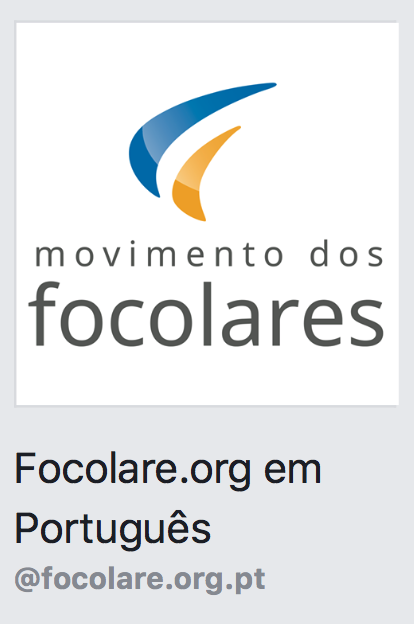
New Facebook page in Portuguese
 Our new Facebook profile in Portuguese is online: Facebook em Português | @ focolare.org.pt As with other languages, the Facebook profile in Portuguese will also propose, every day, the “Thought for the Day”, the Word of life, articles published on the site, but also other information, news and events – especially those in Portugal and Brazil – with the possibility of interacting with many people who believe in a more fraternal world. Invite your friends to visit and follow our page. Spread the ideas and values that can contribute to the construction of a more united world!
Our new Facebook profile in Portuguese is online: Facebook em Português | @ focolare.org.pt As with other languages, the Facebook profile in Portuguese will also propose, every day, the “Thought for the Day”, the Word of life, articles published on the site, but also other information, news and events – especially those in Portugal and Brazil – with the possibility of interacting with many people who believe in a more fraternal world. Invite your friends to visit and follow our page. Spread the ideas and values that can contribute to the construction of a more united world!
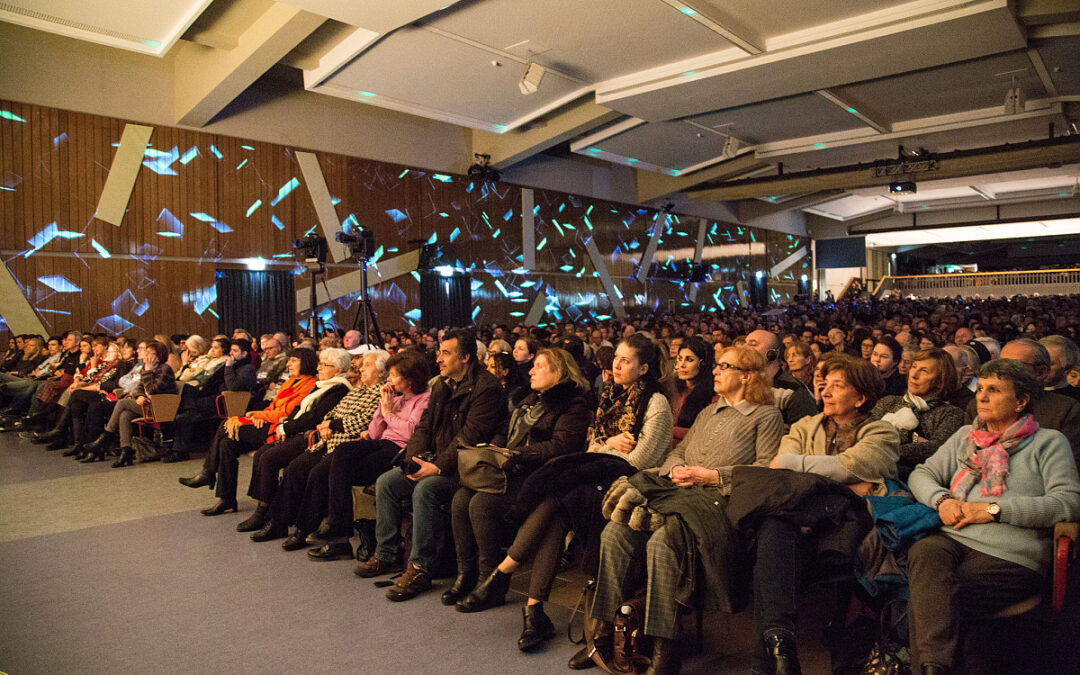
The Soul of the City
The model for our interpersonal and social relationships is Trinitarian love. Even though God is One, he is never alone, but rather a reality of love that expresses plurality, the model of every human community: social relations in the image of the Trinity. One expression of such relations is the city, which Chiara Lubich had always looked at with particular interest. Every city has its “calling”, its specific design that can be turned into a gift, one note in the overall symphony. It was from this perspective that she accepted the many honorary citizenships that were presented to her. Perhaps it was for this reason that she longed to see many little cities being built, laboratories of human community, blueprints of a united world, witnesses to how society could be based on the Gospel’s law of mutual love, on living brotherhood. There are 25 such Focolare towns on all the continents, in different social and cultural settings, such as the United States, Cameroon, the Philippines, Germany, Brazil, Argentina and more. Chiara Lubich was the inspiration of them all, she followed and illuminated their developments. Their prototype is the international town of Loppiano in Italy which will have the honour, on May 10th, of welcoming Pope Francis. Looking at them, Chiara saw them as an “inclined plane” towards the people who are suffering from doubt, uncertainty and no future. She told each of those cities, “to give hope and security, an extended hand of friendship to the people of today who are looking for happiness in the wrong ways, in drugs, eroticism, wealth… These little cities say to all, and show to all, that the true and perfect joy is Jesus. They give light to those suffering disunity in their families or in their local environments, because they provide an example and the secret of unity. They disarm those who are tempted to violence in every field, because they demonstrate, for example, with the internationality of their citizenry that it is through meekness born of love that one can conquer the world.” The people who visit these little cities find a home, a family, a Mother – Mary!! She’s the one that forms and informs entire society of the Focolare Movement. Chiara had always indicated the Magnificat when showings us a life plan and an action plan: “The charter of Christian social doctrine begins there where Mary sings: “He has brought down the mighty from their thrones and lifted up the lowly. He has filled the hungry with good things, and sent the rich away empty.” That has been the experience of the Movement from the very start until now. Some people put their jewels in common, some their lands, all types of possessions; others put their needs in common. Choosing to live a simpler lifestyle helps everybody to have everything they require. The Gospel contains the highest and most overwhelming revolution. And perhaps it is God’s plan that even in this age immersed in solutions to social problems, it will be Our Lady to give all of us Christians a hand in building, solidifying, erecting and showing to the world a new society that strongly re-echoes the Magnificat. We would want to see the communion of goods, among individuals and families, to extend to the city, state, peoples and continents, making way for the civilization of love.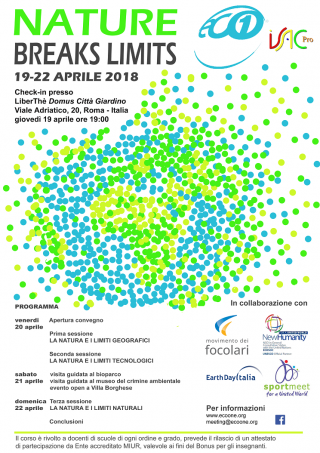
Rome – EcoOne 2018 Convention
 The international convention “Nature breaks limits” will take place at the “I Gigli della Montagna” Conference Hall (Via Monte Senario, 81 – Rome, Italy). We shall reflect on how the confines – geographic, natural, technological – can become launching pads for the sustainable future of the human race and the environment. Per information: http://www.ecoone.org/it/convegni/convegno-2018.html
The international convention “Nature breaks limits” will take place at the “I Gigli della Montagna” Conference Hall (Via Monte Senario, 81 – Rome, Italy). We shall reflect on how the confines – geographic, natural, technological – can become launching pads for the sustainable future of the human race and the environment. Per information: http://www.ecoone.org/it/convegni/convegno-2018.html
2018 Winter Paralympic Games
At the closing of the Winter Olympics last 9 March in Pyeong Chang, a grand inaugural ceremony of the 12th edition of the Winter Paralympic Games was held, and which will last up to 18th. March. In accordance with the International Committee, the Paralympic Games are held every four years, in the same city as that of the Winter Olympics, with the participation of physically disabled athletes. As Pope Frances underlined, if “sports can cast bridges between countries in conflicts and give a valid contribution to prospects of peace among peoples,” the Paralympic Games “even more attest to the fact that through sports, one’s own handicaps can be overcome,” thanks to the “example of courage, constancy, determination in not allowing oneself to be won over by limitations” given by the athletes. “Sports appears to be a big school of inclusion, but also of inspiration for life and commitment to the transformation of society.” The first Winter Paralympics were held in Sweden in 1976. Like the summer Games, they owe their existence to the tenacity with which some doctors, especially the English Ludwig Guttmann, were able, with their methods, to help the veterans of WWII to find in sports competitions an opportunity to rehabilitate themselves and find their own role in society.
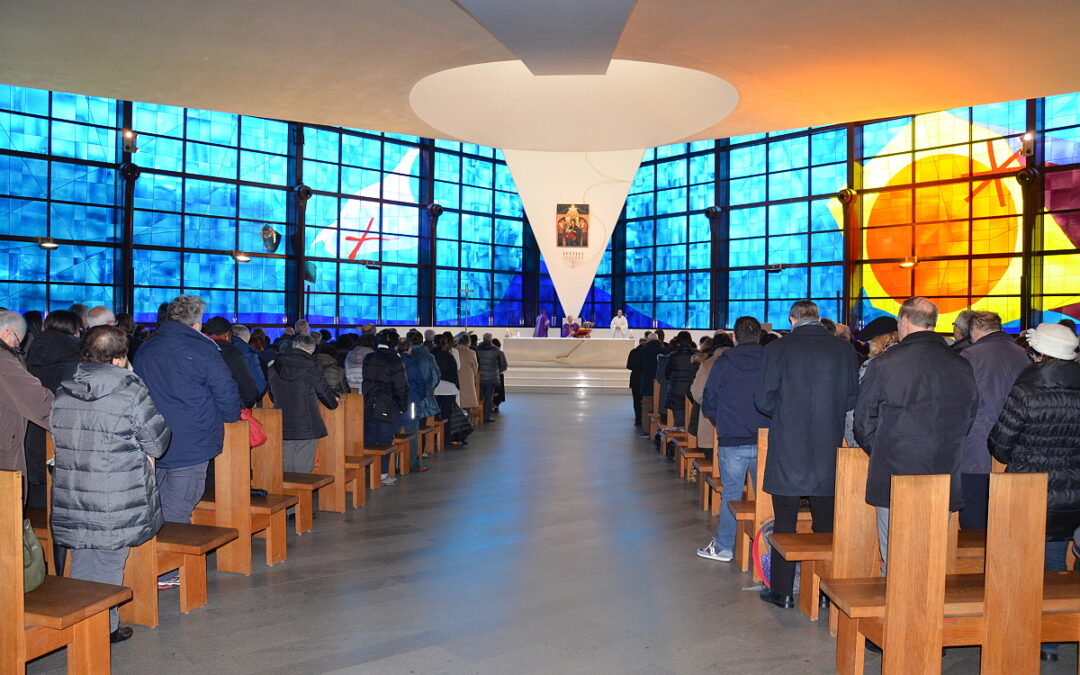
The foundation of society
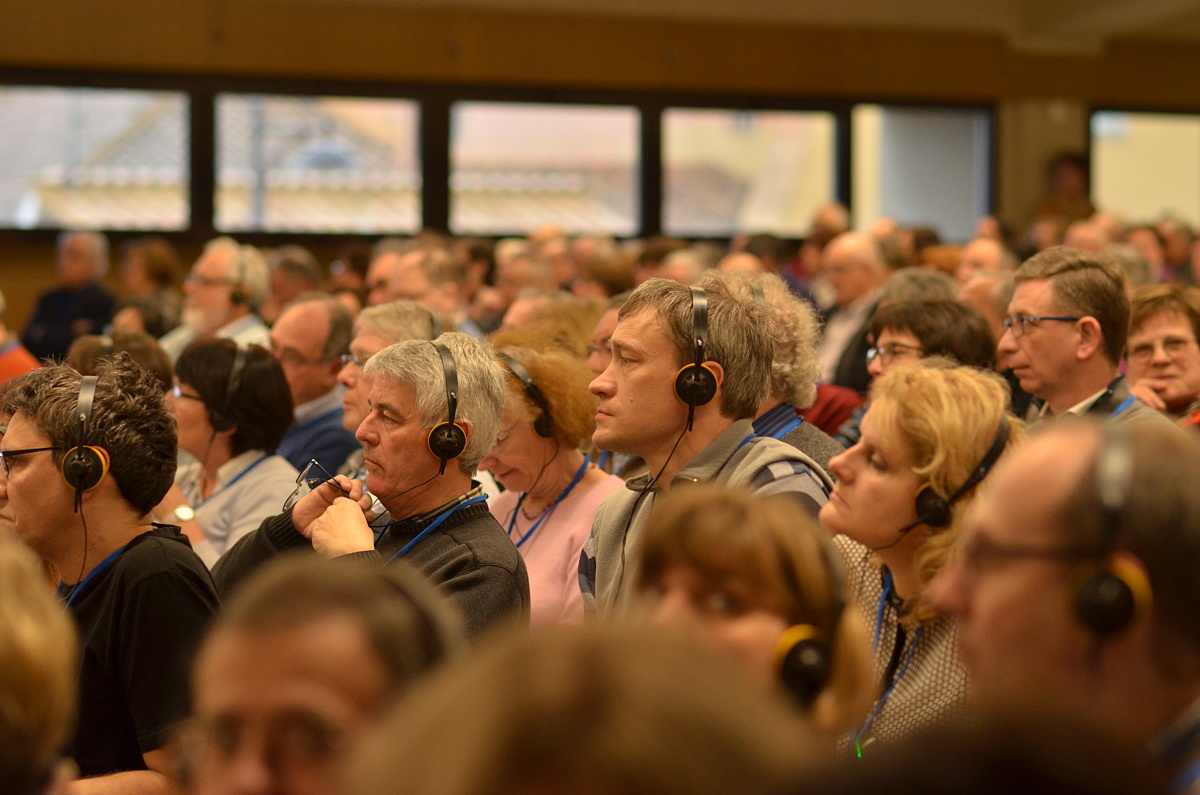 I was there too, with my husband, at the congress for volunteer couples, 600 persons, 14 languages. It was a representation of society, with participants from 5 continents. But let’s start from the beginning. The day before I had a look at the program. I knew that being the 3rd March, there would be at the same time an event dedicated to the tenth anniversary of the death of Chiara Lubich at the congress. And on the other days? The life of the family and the couple, made up of many facets, was to be at the centre of various in-depth moments, with the guide of experts. We have been married for nearly twenty years and we have two children aged 18 and 16 years. Having overcome the tunnel of sleepless nights, of nappies and child centres, having finished the phase of elementary and secondary schools, of geography charts to colour in, and of repeating the story of ancient history, we are sailing through the adolescence of our children and through ours as parents, in search of a serene present and of a future that one uncovers day by day. A web of affections, difficulties and obstacles, amazement in the face of innovation, suffering for the sad events, at times humiliation and the pulling up of our sleeves to start again, but also joys, social passion, a taste for the beautiful, openness towards new things and those unforeseen, racing through difficulties amidst the thousand duties of each one of us. A normal family, at any rate. I read the program and felt a little disappointed. The insistence on the theme regarding the “couple” suffocated me. What about the world? The reality of our times? Art, culture, social relations? Will we be concentrating on looking ‘inside’, to analyze ourselves once again, after so many years? I am a volunteer, used to looking “outside” rather than “inside”, to dream big, to be in close contact with reality and share people’s trials, trying to offer a helping hand, as Chiara Lubich has taught us, to build a more united world. I found the first day of the meeting hard to digest. After all my husband wasn’t there because of work. And in the evening, I confess, I willingly left for the inauguration of an exhibition at the Vittoriano, in the centre of Rome, as a way of refreshing my mind. A little disillusioned I faced the second day, this time as a couple. I tried to reset my thoughts and get more involved, with all my being. I discovered that my husband was making the same effort. This altered attitude helped us to take in the talks that followed with new eyes. It was like for the first time we were receiving insights to inwardly renew our ‘yes’, pronounced many years ago together with our family, the stone on which even we compose society, in this historic moment. I cannot be a good Mum and a professional and give my little contribution if it does not come from the relationship with my first and only companion in life, from the renewed unity among us. How can a house stay upright if its foundations are not deep, solid, strong, healthy?
I was there too, with my husband, at the congress for volunteer couples, 600 persons, 14 languages. It was a representation of society, with participants from 5 continents. But let’s start from the beginning. The day before I had a look at the program. I knew that being the 3rd March, there would be at the same time an event dedicated to the tenth anniversary of the death of Chiara Lubich at the congress. And on the other days? The life of the family and the couple, made up of many facets, was to be at the centre of various in-depth moments, with the guide of experts. We have been married for nearly twenty years and we have two children aged 18 and 16 years. Having overcome the tunnel of sleepless nights, of nappies and child centres, having finished the phase of elementary and secondary schools, of geography charts to colour in, and of repeating the story of ancient history, we are sailing through the adolescence of our children and through ours as parents, in search of a serene present and of a future that one uncovers day by day. A web of affections, difficulties and obstacles, amazement in the face of innovation, suffering for the sad events, at times humiliation and the pulling up of our sleeves to start again, but also joys, social passion, a taste for the beautiful, openness towards new things and those unforeseen, racing through difficulties amidst the thousand duties of each one of us. A normal family, at any rate. I read the program and felt a little disappointed. The insistence on the theme regarding the “couple” suffocated me. What about the world? The reality of our times? Art, culture, social relations? Will we be concentrating on looking ‘inside’, to analyze ourselves once again, after so many years? I am a volunteer, used to looking “outside” rather than “inside”, to dream big, to be in close contact with reality and share people’s trials, trying to offer a helping hand, as Chiara Lubich has taught us, to build a more united world. I found the first day of the meeting hard to digest. After all my husband wasn’t there because of work. And in the evening, I confess, I willingly left for the inauguration of an exhibition at the Vittoriano, in the centre of Rome, as a way of refreshing my mind. A little disillusioned I faced the second day, this time as a couple. I tried to reset my thoughts and get more involved, with all my being. I discovered that my husband was making the same effort. This altered attitude helped us to take in the talks that followed with new eyes. It was like for the first time we were receiving insights to inwardly renew our ‘yes’, pronounced many years ago together with our family, the stone on which even we compose society, in this historic moment. I cannot be a good Mum and a professional and give my little contribution if it does not come from the relationship with my first and only companion in life, from the renewed unity among us. How can a house stay upright if its foundations are not deep, solid, strong, healthy? 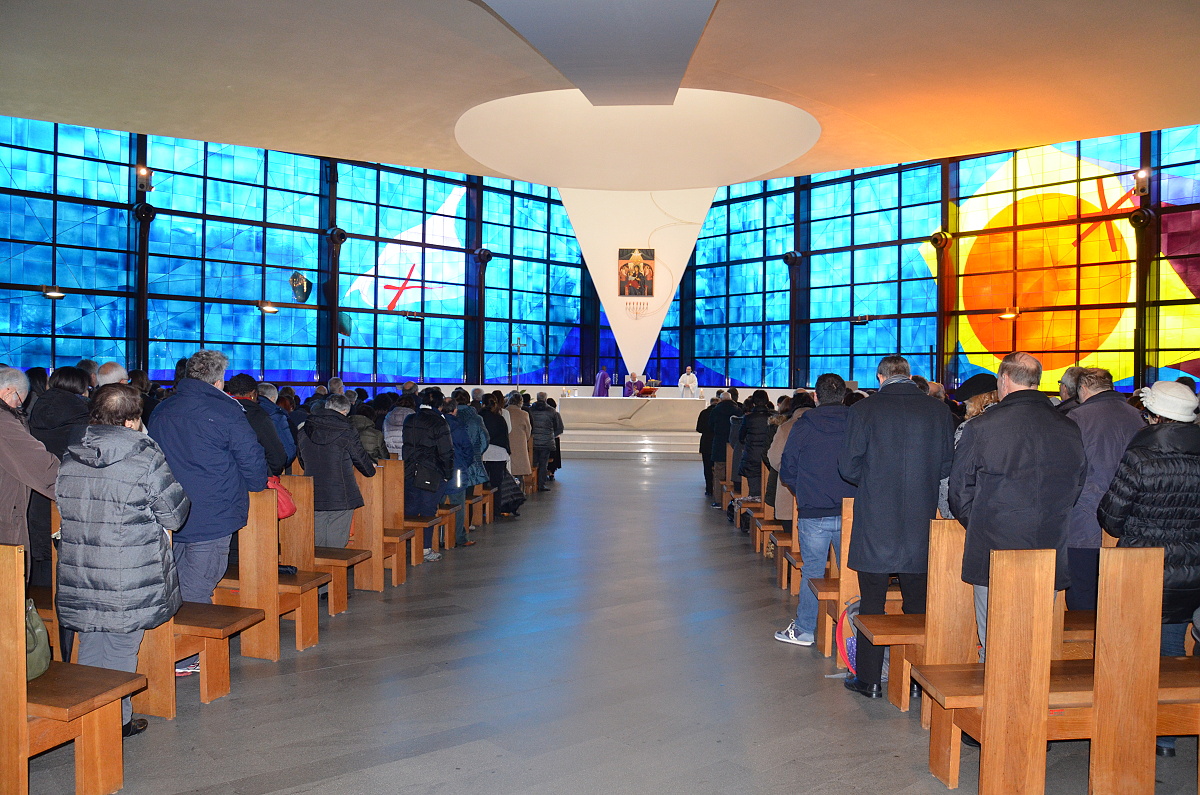 On the third day, together we solemnly renewed our ‘yes’ forever, before the sacred image of Our Lady at the Shrine of Divine Love. It was not a formal act but one that was substantial and free, in the presence of 598 witnesses. In the afternoon, whilst the hall was slowly filling up where the event of the tenth anniversary was to take place, I sat by chance next to two of the participants. They were a couple attending the congress like us. I had not yet seen them. There were a few presentations. I came to know that they had lost a son two years ago. Out comes a photo of him: a splendid boy, with light-coloured eyes, a brown beard. He was only 25 years, in the prime of life. The mother’s eyes welled up with tears. I perceived in that mother the semblance of the Mother, figured in Michelangelo’s Pietà. That’s what a family is: a bulwark, a rock, a heroic foundation of society, without which everything can collapse. It was necessary to stop and focus on the couple. It was indeed necessary. Chiara Favotti
On the third day, together we solemnly renewed our ‘yes’ forever, before the sacred image of Our Lady at the Shrine of Divine Love. It was not a formal act but one that was substantial and free, in the presence of 598 witnesses. In the afternoon, whilst the hall was slowly filling up where the event of the tenth anniversary was to take place, I sat by chance next to two of the participants. They were a couple attending the congress like us. I had not yet seen them. There were a few presentations. I came to know that they had lost a son two years ago. Out comes a photo of him: a splendid boy, with light-coloured eyes, a brown beard. He was only 25 years, in the prime of life. The mother’s eyes welled up with tears. I perceived in that mother the semblance of the Mother, figured in Michelangelo’s Pietà. That’s what a family is: a bulwark, a rock, a heroic foundation of society, without which everything can collapse. It was necessary to stop and focus on the couple. It was indeed necessary. Chiara Favotti
Lord, give me all who are lonely
Lord, give me all who are lonely … I have felt in my heart the passion that fills your heart for all the forsakenness in which the whole world is drifting. I love every being that is sick and alone. Even the suffering of plants causes me pain … even the animals that are alone. Who consoles their weeping? Who mourns their slow death? Who presses to their own heart, the heart in despair? My God, let me be in this world the tangible sacrament of your Love, of your being Love; let me be your arms that press to themselves and consume in love all the loneliness of the world. Chiara Lubich – Essential Writings” New City Press, New York, 2007 p. 81
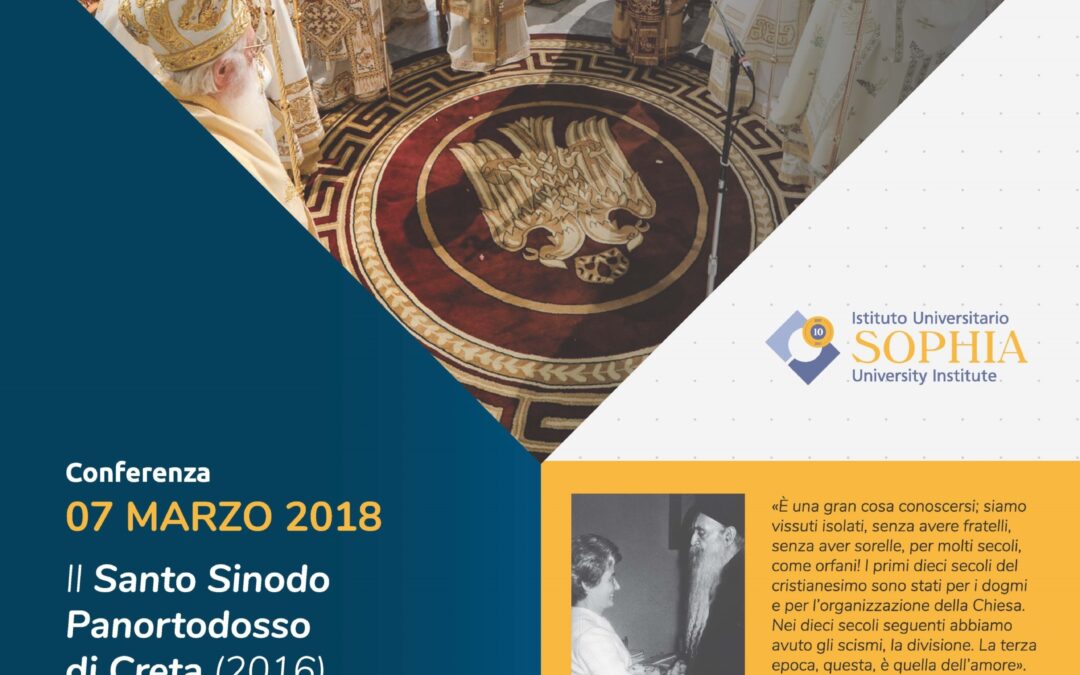
Chair of Ecumenical Studies at Sophia
 The Patriarch Athenagoras – Chiara Lubich Chair of Ecumenical Studies at the Sophia University Institute has launched its first course. The official inauguration of this international Chair of Ecumenical Studies took place last December14, at the Sophia University Institute of Loppiano, when both Pope Francis and the Ecumenical Patriarch Bartholomew I sent messages of best wishes and encouragement. The first set of lectures, on “The Ecclesiology of the Orthodox Church”, will be held from the 5 to 27 March. His Eminence Maximos Vgenopoulos, Metropolitan of Selyvria and Prof. Piero Coda are the co-directors of the course. This Chair, unique in the international and cultural academic scene, came into being 50 years after the first meeting between Patriarch Athenagoras I and Chiara Lubich. It wants to manifest and focus its attention on the legacy that emerged from that meeting, when the Patriarch confided to Chiara: “It is great getting to know each other; for many centuries we have lived in isolation, without brothers and sisters; we have lived like orphans! The first ten centuries of Christianity were centred on dogmas and the Church’s organization. In the ten centuries that followed we had schisms and division. The third epoch, the present one, is that of love ”. In his opening speech on March 5, Piero Coda, the Dean of Sophia, referred to the specific methodology of the Institute, which is based on the commitment to live mutual love as defined by Jesus’ new commandment. And he affirmed: “We want to prepare ourselves with competence and awe to be servants and witnesses of an ecumenism that gushes from the Trinitarian love, source, pattern and goal of unity in the richness and beauty of diversity. This is the only way that empowers us to receive reciprocally the gifts drawn from the priceless treasures of our Churches’ Traditions and offered to each other. This is the only way we can bridge with love the distances that still separate us. T his is the only way we can enrich ourselves reciprocally; the only way that, with the help of God’s grace, we can achieve full and visible unity”. When one considers the political, social and religious instability in Middle East countries and in the Mediterranean region, this Chair assumes cultural and social importance on an international level, even through the opportunities of study and research it offers to the young generation. Its specific aim is to study the cultural meaning, to review the historical stages and analyse in depth the existential and social implications of the ecumenical journey towards full unity among Churches, while exchanging spiritual, theological and cultural wealth of Christians, both in the East and West. Besides, it wants to offer academically qualified courses to those interested in contributing, through thought, dialogue and life experience, towards promoting unity between the Orthodox Church and the Catholic Church. And thus offer a service towards the encounter between peoples and cultures.
The Patriarch Athenagoras – Chiara Lubich Chair of Ecumenical Studies at the Sophia University Institute has launched its first course. The official inauguration of this international Chair of Ecumenical Studies took place last December14, at the Sophia University Institute of Loppiano, when both Pope Francis and the Ecumenical Patriarch Bartholomew I sent messages of best wishes and encouragement. The first set of lectures, on “The Ecclesiology of the Orthodox Church”, will be held from the 5 to 27 March. His Eminence Maximos Vgenopoulos, Metropolitan of Selyvria and Prof. Piero Coda are the co-directors of the course. This Chair, unique in the international and cultural academic scene, came into being 50 years after the first meeting between Patriarch Athenagoras I and Chiara Lubich. It wants to manifest and focus its attention on the legacy that emerged from that meeting, when the Patriarch confided to Chiara: “It is great getting to know each other; for many centuries we have lived in isolation, without brothers and sisters; we have lived like orphans! The first ten centuries of Christianity were centred on dogmas and the Church’s organization. In the ten centuries that followed we had schisms and division. The third epoch, the present one, is that of love ”. In his opening speech on March 5, Piero Coda, the Dean of Sophia, referred to the specific methodology of the Institute, which is based on the commitment to live mutual love as defined by Jesus’ new commandment. And he affirmed: “We want to prepare ourselves with competence and awe to be servants and witnesses of an ecumenism that gushes from the Trinitarian love, source, pattern and goal of unity in the richness and beauty of diversity. This is the only way that empowers us to receive reciprocally the gifts drawn from the priceless treasures of our Churches’ Traditions and offered to each other. This is the only way we can bridge with love the distances that still separate us. T his is the only way we can enrich ourselves reciprocally; the only way that, with the help of God’s grace, we can achieve full and visible unity”. When one considers the political, social and religious instability in Middle East countries and in the Mediterranean region, this Chair assumes cultural and social importance on an international level, even through the opportunities of study and research it offers to the young generation. Its specific aim is to study the cultural meaning, to review the historical stages and analyse in depth the existential and social implications of the ecumenical journey towards full unity among Churches, while exchanging spiritual, theological and cultural wealth of Christians, both in the East and West. Besides, it wants to offer academically qualified courses to those interested in contributing, through thought, dialogue and life experience, towards promoting unity between the Orthodox Church and the Catholic Church. And thus offer a service towards the encounter between peoples and cultures.
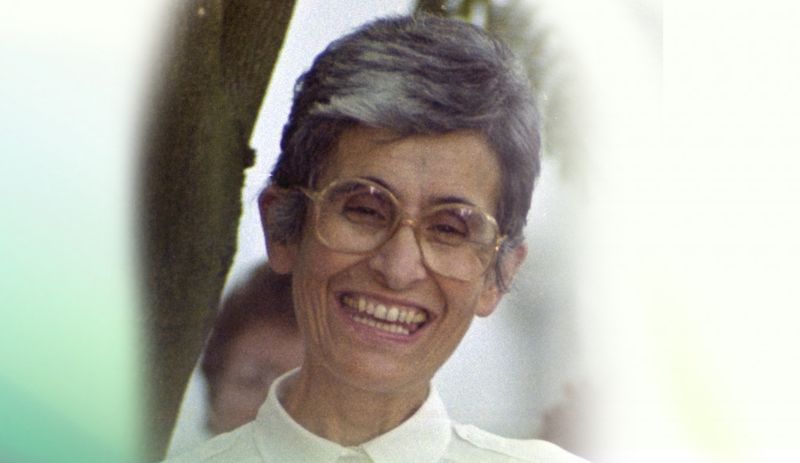
Women masterpieces
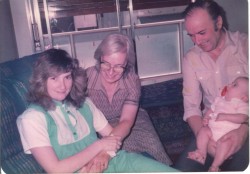 María Cecilia Perrín was a sunny-natured Argentinean girl born in Punta Alta (Buenos Aires) in 1957. After being engaged for two years, she and Luis married in 1983 and she lived intensely with the desire to set solid Christian roots to the emerging family. Two years later, while she was pregnant she was diagnosed with cancer. With the support of her husband and the family, she chose not to heed the suggestion to undergo a “therapeutic abortion.” She died at the age of 28 after the birth of the baby girl. As she expressly requested, her remains were interred in the Mariapolis Lia (O’Higgins, Buenos Aires), a place of joy and hope. Her reputation of sanctity, heroism in accepting her illness, the example of Christian life, and the many graces that have been granted through her intercession started off the cause of her beatification on 30 November 2005.
María Cecilia Perrín was a sunny-natured Argentinean girl born in Punta Alta (Buenos Aires) in 1957. After being engaged for two years, she and Luis married in 1983 and she lived intensely with the desire to set solid Christian roots to the emerging family. Two years later, while she was pregnant she was diagnosed with cancer. With the support of her husband and the family, she chose not to heed the suggestion to undergo a “therapeutic abortion.” She died at the age of 28 after the birth of the baby girl. As she expressly requested, her remains were interred in the Mariapolis Lia (O’Higgins, Buenos Aires), a place of joy and hope. Her reputation of sanctity, heroism in accepting her illness, the example of Christian life, and the many graces that have been granted through her intercession started off the cause of her beatification on 30 November 2005. 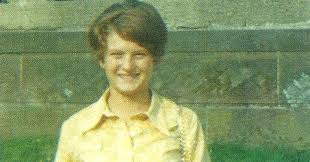 Maria Orsola Bussone, born in 1954 in Vallo Torinese, northern Italy, was a generous, open and sportive child. At the age of 11 she participated with her family in a meeting of the parish Movement in Rocca di Papa. She wrote to Chiara Lubich: “I want to love always, be the first to love, without expecting a return. I want to let God use me as He desires and do all I can, since that is the only thing in life that matters.” On 10 July 1970, at 15, while participating as an activities coordinator in a summer camp, she died of an electric shock while drying her hair with a hairdryer. Her fame of sanctity spread and many people went to her tomb to pray for her intercession. Her diary and letters revealed her deep spirituality. The construction of the parish Centre to which she contributed was named after her. On 17 December 2000 the diocesan phase of the cause of beatification ended. On 18 March 2015 Pope Francis authorised the promulgation of the decree which declared her a Venerable.
Maria Orsola Bussone, born in 1954 in Vallo Torinese, northern Italy, was a generous, open and sportive child. At the age of 11 she participated with her family in a meeting of the parish Movement in Rocca di Papa. She wrote to Chiara Lubich: “I want to love always, be the first to love, without expecting a return. I want to let God use me as He desires and do all I can, since that is the only thing in life that matters.” On 10 July 1970, at 15, while participating as an activities coordinator in a summer camp, she died of an electric shock while drying her hair with a hairdryer. Her fame of sanctity spread and many people went to her tomb to pray for her intercession. Her diary and letters revealed her deep spirituality. The construction of the parish Centre to which she contributed was named after her. On 17 December 2000 the diocesan phase of the cause of beatification ended. On 18 March 2015 Pope Francis authorised the promulgation of the decree which declared her a Venerable. 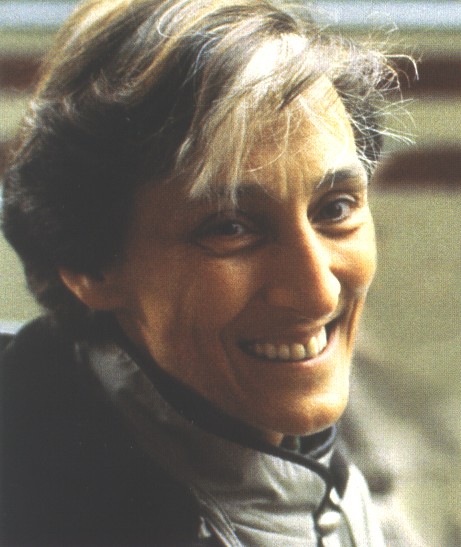 Margarita Bavosi, born in 1941, is the third child of a wealthy family of Buenos Aires (Argentina). She lived a happy life until she was ten, when her mother suddenly passed away. The acute pain pushed her to ask the Virgin Mary to take her place. The meeting with the charism of unity was the answer to her desire for sanctity. She donated her life to God in the focolare, and was known to all as “Luminosa.” She spent some years in Brazil, Argentina and Uruguay, and became the co-director of the Focolare Movement in Spain. At 40 she felt an unexplainable physical decline, and only after three years received a precise prognosis. Soon she was unable to move about but continued to build relationships, taking to heart the motto of St. Aloysius Gonzaga “I shall keep on playing my game.” The night of 6 March 1985, amid the amazement of those present, she said “Here I am Jesus, I have always tried to do everything in your presence.” On 22 November 2008 the diocesan phase of the canonisation phase closed. The center of the Focolare of Madrid and the international town close to New York were named after her.
Margarita Bavosi, born in 1941, is the third child of a wealthy family of Buenos Aires (Argentina). She lived a happy life until she was ten, when her mother suddenly passed away. The acute pain pushed her to ask the Virgin Mary to take her place. The meeting with the charism of unity was the answer to her desire for sanctity. She donated her life to God in the focolare, and was known to all as “Luminosa.” She spent some years in Brazil, Argentina and Uruguay, and became the co-director of the Focolare Movement in Spain. At 40 she felt an unexplainable physical decline, and only after three years received a precise prognosis. Soon she was unable to move about but continued to build relationships, taking to heart the motto of St. Aloysius Gonzaga “I shall keep on playing my game.” The night of 6 March 1985, amid the amazement of those present, she said “Here I am Jesus, I have always tried to do everything in your presence.” On 22 November 2008 the diocesan phase of the canonisation phase closed. The center of the Focolare of Madrid and the international town close to New York were named after her.  Renata Borlone was born on 30 May 1930 in Aurelia (Civitavecchia, close to Rome). She was raised in a non-practicing but united family, and when she was 10, witnessed the explosion of World War II. Thirsting for truth, she sought it in studies. She enrolled in the Faculty of Chemistry, since she was a science enthusiast. At 19 she came in contact with the evangelical life of some of the first focolare women who had just moved to Rome, and through them, she felt the certainty that God is love! At 20 she entered the focolare and for 40 years served the Work of Mary, with roles of responsibility in Italy and abroad. In 1967 she arrived at the Training School Loppiano where she spent 23 years constantly focused on reaching sanctity. At 59 she was found to have a serious illness and the few months that remained were an acceleration in her thrust toward God. Despite her suffering she transmitted joy and a sense of sacredness and up to the last moment repeated, “I want to testify that death is life.” On 27 February 2011 the diocesan phase of the beatification process closed. Chiara Favotti Also see: Alfredo Zirondoli, “Luminosa continued to play. Profile of Margarita Bavosi,” Città Nuova, Rome. Giulio Marchesi, Alfredo Zirondoli, “A silence that became life. The life of Renata Borlone”, Città Nuova, Rome.
Renata Borlone was born on 30 May 1930 in Aurelia (Civitavecchia, close to Rome). She was raised in a non-practicing but united family, and when she was 10, witnessed the explosion of World War II. Thirsting for truth, she sought it in studies. She enrolled in the Faculty of Chemistry, since she was a science enthusiast. At 19 she came in contact with the evangelical life of some of the first focolare women who had just moved to Rome, and through them, she felt the certainty that God is love! At 20 she entered the focolare and for 40 years served the Work of Mary, with roles of responsibility in Italy and abroad. In 1967 she arrived at the Training School Loppiano where she spent 23 years constantly focused on reaching sanctity. At 59 she was found to have a serious illness and the few months that remained were an acceleration in her thrust toward God. Despite her suffering she transmitted joy and a sense of sacredness and up to the last moment repeated, “I want to testify that death is life.” On 27 February 2011 the diocesan phase of the beatification process closed. Chiara Favotti Also see: Alfredo Zirondoli, “Luminosa continued to play. Profile of Margarita Bavosi,” Città Nuova, Rome. Giulio Marchesi, Alfredo Zirondoli, “A silence that became life. The life of Renata Borlone”, Città Nuova, Rome.

